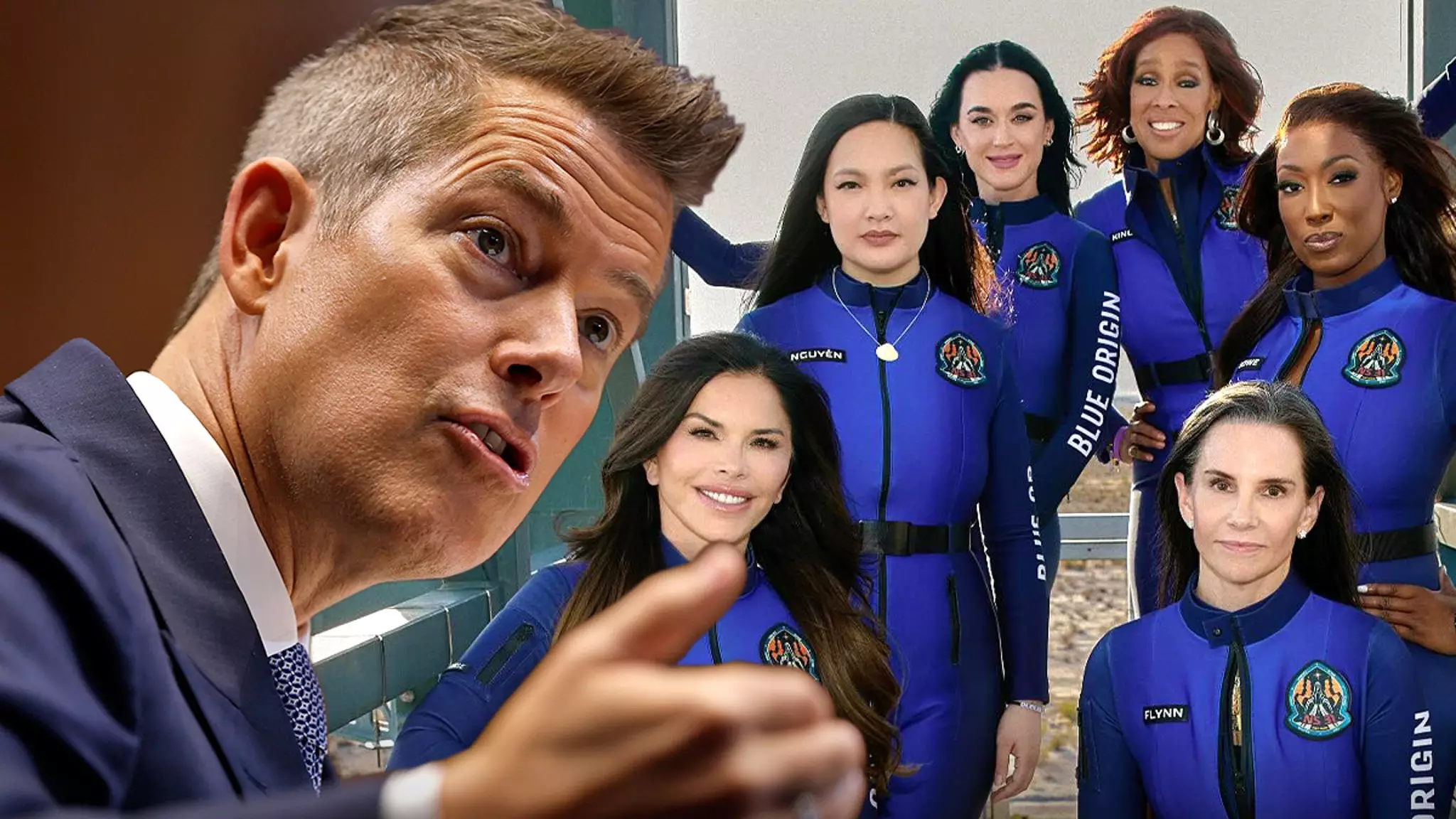In an era where the boundaries of space travel are expanding at an unprecedented pace, the definition of who qualifies as an astronaut has become a contentious topic. Recently, a group of women—Katy Perry, Lauren Sánchez, Gayle King, Aisha Bowe, Amanda Nguyễn, and Kerianne Flynn—took a thrilling 11-minute jaunt into space, courtesy of Blue Origin. However, U.S. Transportation Secretary Sean Duffy has stirred a heated conversation by challenging their astronaut status, asserting that they do not meet the criteria outlined by the FAA. This raises provocative questions about how we define achievement in space exploration and who gets to wear the title of “astronaut.”
Flying to an altitude of 62 miles, the crew indeed crossed the Kármán line, the threshold recognized internationally as the boundary of space. Yet, Duffy’s critique hinges on the notion that they did not engage in critical safety activities during their flight—essentially arguing that adventure alone does not qualify one to be considered an astronaut. This modern debate reminds us of the shifting landscape in space exploration; are we still holding onto outdated definitions in a rapidly evolving arena?
Women in Space: A Celebration or Performance?
The emergence of a diverse group of female pioneers in the cosmos should be a moment of celebration. Still, it has drawn sharp rebukes from various quarters. Critics, including fellow celebrities like Emily Ratajkowski, have characterized this foray into space as a frivolous venture. They argue that such extravagant undertakings are a blatant display of privilege—essentially a “gluttonous waste of money” that glosses over pressing issues on Earth, such as economic instability and environmental degradation.
Rather than promoting excitement about space travel, these perspectives present an image of the voyage as a hollow attempt at spectacle. It raises the important question of whether companies like Blue Origin are genuinely advancing humanity’s reach into the cosmos or merely playing into a brand narrative that prioritizes celebrity over meaningful contributions to space science.
The Impact of Commercial Space Travel on Society
The conversation surrounding commercial space travel transcends the mere act of going to space; it invites scrutiny into the ethical implications of such endeavors. Are companies like Blue Origin and SpaceX contributing to a future where space is accessible to all, or are they creating a privileged elite space tourist class? The stark reality is that many people across the globe are struggling to meet basic needs, making it hard for the public to rally behind the idea of celebrity flights to space while families are fighting to afford groceries.
Jessica Alba’s suggestion to direct the criticism toward larger systemic issues, like governmental policies, shifts the focus from individual actions to broader societal structures that often prioritize profit over equitable resource distribution. This is where the beauty of space exploration clashes with the harsh realities of Earth. The significance of a journey into space has ramifications that extend beyond personal achievement. The challenges facing humanity on Earth cannot be ignored in the quest for exploration beyond our planet.
Redefining Success in Space Exploration
As we navigate the future of space travel, it’s crucial to reassess what it means to be successful in this field. The definition of an astronaut is rapidly becoming a moving target, influenced by technical achievements, commercial interests, and public sentiment. The FAA’s evolving guidelines reflect the industry’s growth but also highlight inconsistencies in who gets celebrated for their contributions. Shouldn’t exploration be recognized for its aspirational qualities, such as bravery and innovation, rather than merely technical compliance?
The real question we must grapple with is—how do we elevate the conversation around space exploration? It’s about more than just verification through regulation; it’s about inspiring the next generation of explorers, scientists, and dreamers who will ultimately shape the trajectory of human innovation. The challenge lies in fostering a narrative that celebrates not just the individuals who have the privilege to fly above the clouds, but also those grounded in the pursuit of knowledge and sustainability here on Earth.
As we redefine the parameters of space exploration, perhaps the true measure of an astronaut should incorporate their contribution to humanity’s overall progress, both in the stars and on our home planet. So as we cheer on these brave space adventurers, let’s also remember the ongoing mission we have here—one that grounds us in our shared reality while we aim for the stars.

